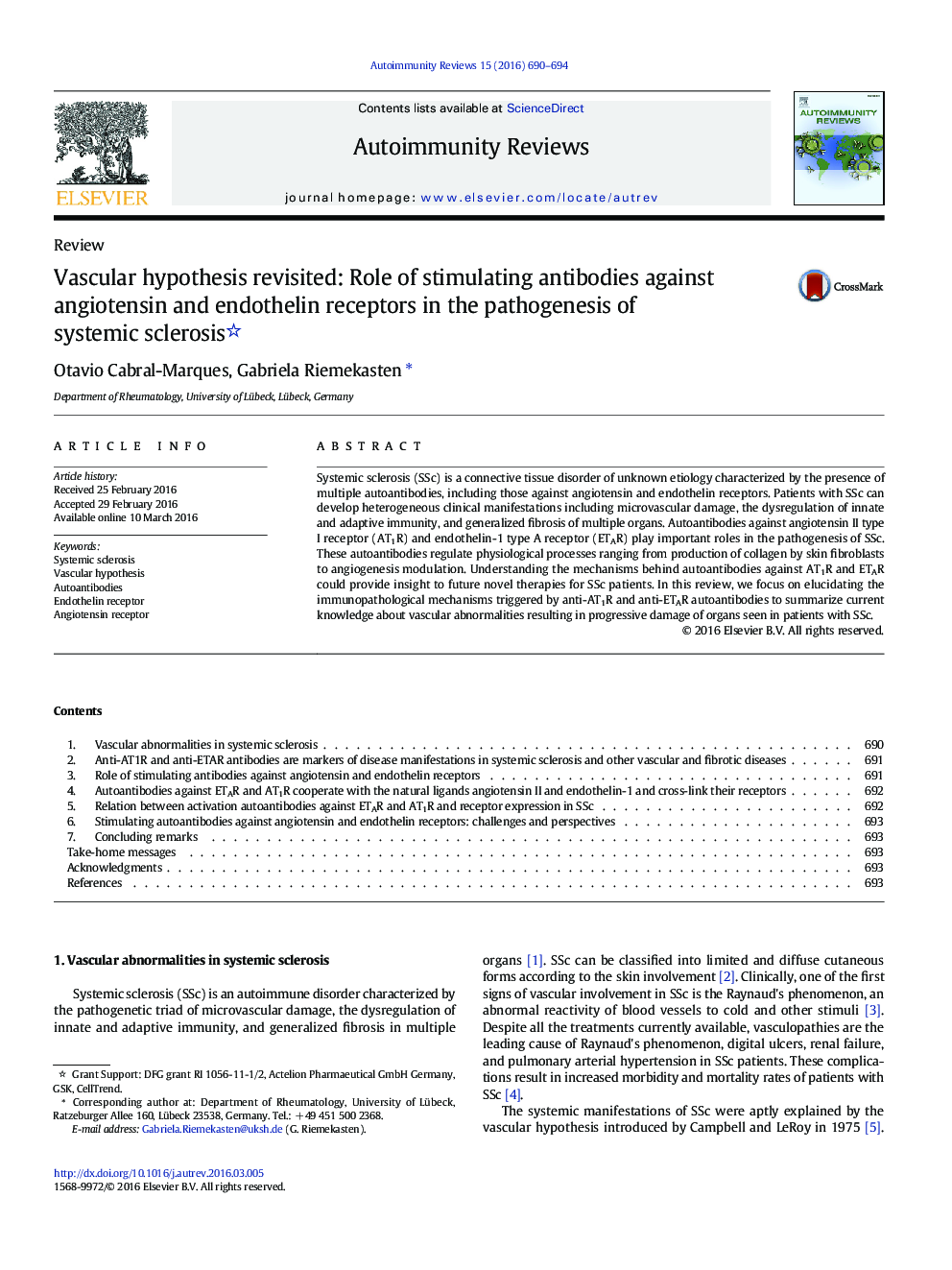| Article ID | Journal | Published Year | Pages | File Type |
|---|---|---|---|---|
| 3341345 | Autoimmunity Reviews | 2016 | 5 Pages |
Systemic sclerosis (SSc) is a connective tissue disorder of unknown etiology characterized by the presence of multiple autoantibodies, including those against angiotensin and endothelin receptors. Patients with SSc can develop heterogeneous clinical manifestations including microvascular damage, the dysregulation of innate and adaptive immunity, and generalized fibrosis of multiple organs. Autoantibodies against angiotensin II type I receptor (AT1R) and endothelin-1 type A receptor (ETAR) play important roles in the pathogenesis of SSc. These autoantibodies regulate physiological processes ranging from production of collagen by skin fibroblasts to angiogenesis modulation. Understanding the mechanisms behind autoantibodies against AT1R and ETAR could provide insight to future novel therapies for SSc patients. In this review, we focus on elucidating the immunopathological mechanisms triggered by anti-AT1R and anti-ETAR autoantibodies to summarize current knowledge about vascular abnormalities resulting in progressive damage of organs seen in patients with SSc.
